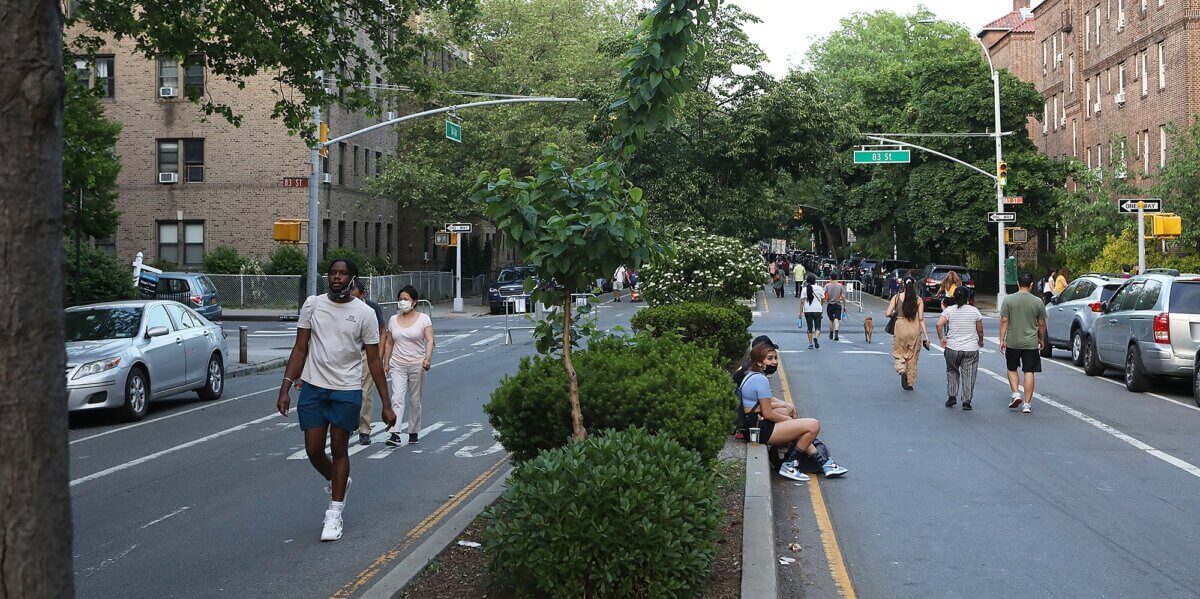By Ben Brachfeld
Photo By Christina Santucci/Queens Post
A dozen New Yorkers with disabilities have filed a federal lawsuit against the city, claiming that its Open Streets program violates the Americans With Disabilities Act, with the hope of scuttling the program.
The lawsuit, filed in Brooklyn Federal Court Monday, says everything about Open Streets is a ruse down to its name, deeming it “Orwellian Newspeak” and arguing it would more appropriately be called “Closed Streets.” The plaintiffs argue that by occasionally closing off some streets to car traffic, seniors and people with disabilities who can only travel by motor vehicle — particularly those living on Open Streets — are facing illegal discrimination.
“The program results in the de facto closure of New York City’s public avenues and streets to individuals with disabilities — whose only or primary access to the streets and to the buildings, businesses and services on the streets — is through the use of motor vehicles,” the 12 plaintiffs, who live in Manhattan, Brooklyn, and Queens, allege in the suit, which names the city and various organizations managing Open Street locations as defendants.
Open Streets began at the height of the COVID-19 pandemic, intended to provide open space on local streets for locked-down city residents. The program proved one of the more popular pandemic-era policies, and has returned each summer, with this year’s program set to encompass more than 300 city blocks across all five boroughs.
Volunteers with local civic groups manage the open streets, which are typically in operation for a set number of hours per day, mostly in summer months. The volunteers set up the barricades to block off car traffic, leaving the streets for the exclusive use of pedestrians and cyclists.
Some Open Streets are entirely closed off to motor vehicles except for emergency services, while others allow access to locals seeking to park or drivers making deliveries. They often are the site of outdoor dining, public art displays, and community programming and performances. The city has declared it intends to redesign some popular Open Streets, like Vanderbilt Avenue in Brooklyn and 34th Avenue in Queens, to more permanently reflect a pedestrian focus, with the hope that barriers might not be needed.
Read more on AMNY.


